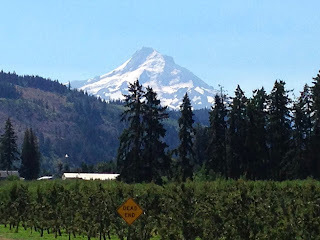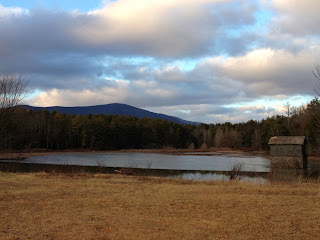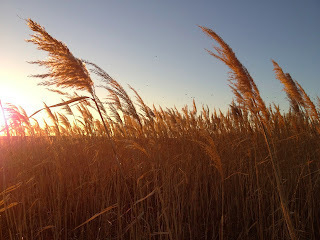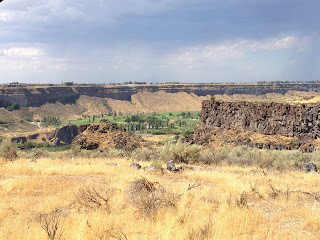Alan Paton
- Virginia Woolf, Mrs. Dalloway. (Mixed feelings about this one. My mind enjoyed it more than my aesthetic sense did, if that makes sense.)
- John Steinbeck, Cannery Row and Of Mice and Men. (I discovered Steinbeck late in life, thanks to a friend's recommendation. I've also recently read his Log From The Sea of Cortez and Travels With Charley In Search Of America. I think these two will forever shape me as a writer.)
- Graham Greene, Our Man In Havana, The Quiet American, The Honorary Consul, Travels With My Aunt, The Power And The Glory. (I will let the number of titles speak for itself.)
- Alan Paton, Cry, The Beloved Country. (I was surprised by how contemporary this old book felt, and by how relevant to America an African book could feel.)
- The Táin. Because I have a thing for reading really old books, and this is one of the oldest from Europe.
- China Miéville, Kraken. (London. Magical realism. Bizarre and witty.)
- J. Mark Bertrand, Back On Murder (I don't read many detective novels, but I really enjoy Bertrand's prose.)
- Cormac McCarthy, The Road. (The final lines spoke to my salvelinus fontinalis -loving heart.)
- David James Duncan, The River Why (I've re-read this one a few times. If you like trout and philosophy, you might like this book.)
- Mary Karr, Lit. (Third in a series of memoirs. Some of the best storytelling I've read in a long time. Brilliant insights into addiction, love, and prayer.)
∞
The Moral Issue Of Land
In my daily readings a while back I came upon this:
And this, written by Alan Paton. His younger Jarvis (in Cry, the Beloved Country) also writes prophetically about South Africa. What he says could have been written about any number of places, though:
The question I am pondering this morning: What do love and justice require of us when it comes to land ownership?
This question is made more poignant as our state legislature is considering eliminating perpetual conservation land easements. One argument against them is that it seems unreasonable to put limitations on future people. We may rightly ask: can we consider those people who do not yet exist - and who therefore may never exist - as factors or agents in our moral reasoning?
And yet every time we consume a non-renewable resource we are making an irrevocable decision about what the land will yield for perpetuity. Land easements may be one way to offset the effects of our other decisions, and they are at least reversible if the future proves them foolish.
Jarvis correctly diagnoses us: when we think about the future, frequently we are moved by fear. Isn't that why the prince Ezekiel spoke of was tempted not to give up his land?
I also find that when I think about the future, I am also motivated by love, and that love is perhaps my strongest, my most angelic impulse. I save, teach, build, conserve, and create for my children, and for others like them. I may not be able to give them a better world, but I do feel - I admit it is, at its base, a feeling - that I owe them at least as good a world as I received.
"[The prince] is to give his sons their inheritance out of his own property so that none of my people will be separated from his property." (Ezekiel 46.18)
 |
| Central Oregon |
And this, written by Alan Paton. His younger Jarvis (in Cry, the Beloved Country) also writes prophetically about South Africa. What he says could have been written about any number of places, though:
"It is true that we hoped to preserve the tribal system by a policy of segregation. That was permissible. But we never did it thoroughly or honestly. We set aside one-tenth of the land for four-fifths of the people. Thus we made it inevitable, and some say we did it knowingly, that labour would come to the towns. We are caught in the toils of our own selfishness....No one wishes to make its solution seem easy....But whether we be fearful or no, we shall never, because we are a Christian people, evade the moral issues."As a child I thought prophets were people who predicted the future, or who spoke things God wanted to say, like spokespeople. As I've grown older, my notion of prophets has expanded to mean those people who disrupt our quotidian secular and economic concerns in order to remind us that love and justice may and must constrain our actions. What could be more important than that?
 |
| Zena Reservoir and Overlook Mountain |
The question I am pondering this morning: What do love and justice require of us when it comes to land ownership?
This question is made more poignant as our state legislature is considering eliminating perpetual conservation land easements. One argument against them is that it seems unreasonable to put limitations on future people. We may rightly ask: can we consider those people who do not yet exist - and who therefore may never exist - as factors or agents in our moral reasoning?
 |
| Dakota prairie |
And yet every time we consume a non-renewable resource we are making an irrevocable decision about what the land will yield for perpetuity. Land easements may be one way to offset the effects of our other decisions, and they are at least reversible if the future proves them foolish.
Jarvis correctly diagnoses us: when we think about the future, frequently we are moved by fear. Isn't that why the prince Ezekiel spoke of was tempted not to give up his land?
I also find that when I think about the future, I am also motivated by love, and that love is perhaps my strongest, my most angelic impulse. I save, teach, build, conserve, and create for my children, and for others like them. I may not be able to give them a better world, but I do feel - I admit it is, at its base, a feeling - that I owe them at least as good a world as I received.
 |
| Twin Falls, Idaho |
∞
Books Worth Reading
After my recent post about great books, pedagogy and hope I've had some queries about what I'm reading and what I recommend.
I'm reluctant to make book recommendations because I think what you read should have some connection to what you care about and what you've already read. In general, my recommendations are these:
First, I agree with what C.S. Lewis once said:* it's good to read old books. Old books and books written by people who are not like us have a remarkable power of helping us to see the world with fresh eyes.
Second, let your reading grow organically. If you liked a book you read, let it lead you to the next book you read. Often, books name their connections to other books. Or authors will name those connections, dependencies, and appreciations. The first time I read Lewis's Out of the Silent Planet, I missed the fact that the preface named H.G. Wells and that the afterword referred to Bernardus Silvestris. When I read it again as an adult, I caught those obvious references and let them lead me to other books.**
Third, I recommend learning the classics. That's an intentionally vague term, and I use it to mean that it's good to know those books that have given your culture its vocabulary. People who have stories in common have enriched possibilities for conversation. One of my favorite Star Trek episodes explored this idea, and it appealed to me because I believe that it's not far from how language really grows. If you need a place to start, check out one of the various lists of "great books" floating around out there. For instance this one, or this one.
With all that being said, if you're still interested in what I'm reading, here are some older titles I've enjoyed in the last year or so:
* Lewis said this in his introduction to Athanasius' On The Incarnation (which, by the way, is now available from SVS Press in a dual-language edition, Greek on one page, English on the facing page.)
** There are two excellent books on Lewis' "Space Trilogy" or (as I think it should be called) "Ransom Trilogy": This one by Sanford Schwartz, and this one by David Downing.
I'm reluctant to make book recommendations because I think what you read should have some connection to what you care about and what you've already read. In general, my recommendations are these:
First, I agree with what C.S. Lewis once said:* it's good to read old books. Old books and books written by people who are not like us have a remarkable power of helping us to see the world with fresh eyes.
Second, let your reading grow organically. If you liked a book you read, let it lead you to the next book you read. Often, books name their connections to other books. Or authors will name those connections, dependencies, and appreciations. The first time I read Lewis's Out of the Silent Planet, I missed the fact that the preface named H.G. Wells and that the afterword referred to Bernardus Silvestris. When I read it again as an adult, I caught those obvious references and let them lead me to other books.**
Third, I recommend learning the classics. That's an intentionally vague term, and I use it to mean that it's good to know those books that have given your culture its vocabulary. People who have stories in common have enriched possibilities for conversation. One of my favorite Star Trek episodes explored this idea, and it appealed to me because I believe that it's not far from how language really grows. If you need a place to start, check out one of the various lists of "great books" floating around out there. For instance this one, or this one.
With all that being said, if you're still interested in what I'm reading, here are some older titles I've enjoyed in the last year or so:
*****
* Lewis said this in his introduction to Athanasius' On The Incarnation (which, by the way, is now available from SVS Press in a dual-language edition, Greek on one page, English on the facing page.)
** There are two excellent books on Lewis' "Space Trilogy" or (as I think it should be called) "Ransom Trilogy": This one by Sanford Schwartz, and this one by David Downing.
*****
I realize I'm posting a lot about Great Books and St John's College lately. I'll stop soon. They don't pay me for this; I'm just a grateful alumnus.
*****
Update, 8/11/14: I've posted another list like this one on my blog, with new recommendations. You can find it here.